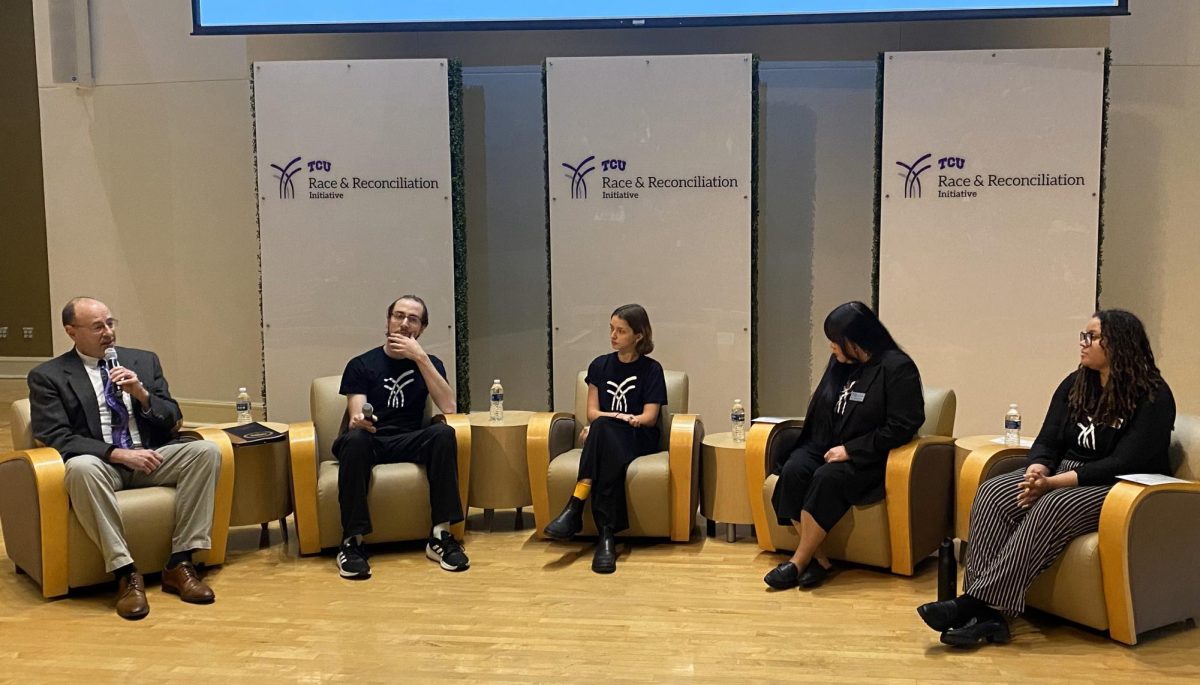TCU’s Political Science Distinction Program met Wednesday to discuss the historical context and aftermath of the Grand Jury decision in the case of Darren Wilson shooting Michael Brown in Ferguson, Missouri.
Emily Farris, an assistant professor in political science who specializes in urban politics, led the teach-in, a term derived from the sit-ins of the Civil Rights Movement.
Farris lectured about the events that have happened in the past few months in Ferguson and the more recent Grand Jury decision to not indict Wilson for the death of Brown and ensuing protests.
Farris, a specialist in racial and ethnic politics, also analyzed the racial factors that contributed to the riots.
The city of Ferguson is about 67 percent black, but few of the public officials are black individuals, according to Farris.
“The conditions of Ferguson were unfortunately right for some sort of racial conflict to happen there,” Farris said.
Farris also drew parallels between the events in Ferguson and similar riots that took place in the 1960s across the United States.
“Some type of police shooting or negative police interaction precipitated nearly every riot that occurred in the 1960s,” Farris said.
Students and faculty were able to weigh in and debate on the issue of Ferguson and the controversies that have consumed the nation during the program.
One perspective came from Jim Riddlesperger, a political science professor, who is a former resident of Ferguson, Missouri.
Riddlesperger said that the race conflicts with the police in Ferguson have existed for many years.
Farris posed several questions for audience members to ponder, such as the role of race in this situation and why this particular incident generated so much controversy.
“This event suggests that we live in a racist, overly violent, overly militarized society,” said assistant Professor Sam Arnold. “That gets people fired up, and others see that as very threatening.
Farris ended the teach-in with a challenge to the audience to consider what the events of Ferguson mean for TCU’s campus.
“As students, I encourage you to keep pushing,” said Farris. “Think hard about what this all means for you personally and what this means for us as a society.”



